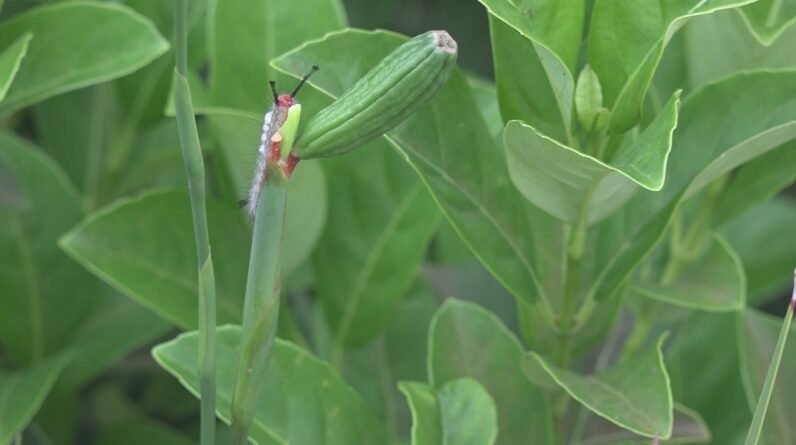
The Jacksonville Poison Information Center says its best to look at the seasonal critters without touching them.
JACKSONVILLE, Fla. — Springtime in North Florida has made one hairy critter a common site in yards around Jacksonville.
They sure are fuzzy and little, but experts say if you see a Tussock Moth caterpillar, it’s best not to touch it.
“I just looked down and it happened to be on me,” said Jacksonville Poison Information Center Director Dr. Dawn Sollee.
As the director of Jacksonville’s Poison Information Center, Dawn Sollee knew exactly what to do when she saw a Tussock moth caterpillar on her arm – get it off without touching it.
The greatest risk isn’t stinging or biting, but the caterpillars’ fuzzy little hairs – turns out, they aren’t as soft as they may look.
“These hairs can get lodged in the skin and cause irritation,” said Sollee. “You can get redness, bumps to the site, a stinging sensation.”
Sollee says the caterpillars are common in North Florida in March and April.
Although she was able to get one off her without getting any of the hairs stuck, her daughter wasn’t as lucky.
Fortunately, she knew what to do then too.
“You would take the piece of tape, put it over the area and then pull it off,” said Sollee. “Do that a couple of times to the site to make sure you get all those hairs out.”
Sollee says to wash the area really well and use ice or a cortisone cream to help sooth the irritation.
University of Florida Research shows the caterpillars should be cocooning up in the next couple of weeks, but even then, their hair tends to stick out of the cocoon, so you don’t want to touch those either.







